Scientists Say Octopus DNA Does NOT Belong To Our World!
1. The oceans of the world still have lots of unsolved mysteries and we are now looking up at the sky to answer the questions on our minds, maybe in vain.
During the last 20-30 years, there have been great advances in marine biology. Most recently, a group of scientists decided to get to know this species better and revealed their DNA structure.
2. The octopus, squid, and cuttlefish are integrated into the coleoid sub-class of the mollusks. and their evolutionary history is believed to date back over 500 million years.
That's such a long time ago that there weren't even any plants on earth. These creatures lived in oceans at any depth.
3. There are many different morphological properties that differentiate this class from others:
Camera-like eyes, a very flexible body and a developed, chameleon-like camouflage are among these characteristics. The reason for all of these is their nervous system, which is way bigger than any other invertebrates. What makes them the master of the ocean is these properties.
4. These creatures have very highly developed brains and are known as the most intelligent invertebrates, thanks to the extraordinary problem solving skills they manifest.
The latest studies have shown that octopuses are more mysterious than we think.
5. These creatures' genomes, which were revealed recently, showed that they are completely different than any other life form in the world.
6. Dr. Clifton Ragsdale from the University of Chicago states the following:
"The octopus appears to be utterly different from all other animals, even other molluscs, with its eight prehensile arms, its large brain, and its clever problem-solving abilities."
7. And English zoologist Martin Wellsê argues that octopuses are definitely aliens.
One of the mains reasons why researchers decided to investigate the molecular basis of cephalopod brain, was its ability to adapt its neural network properties instantly, which result in a great impact in memory and learning capacity. These specific capabilities offer an explanation within the genome that incorporates biological mechanisms and allow tissues to rapidly change proteins in order to alter their function.
8. According to the researchers from the University of Chicago, the octopus genome has transposons, which are also referred to as "jumping genes."
"Transposon" is the name given to the DNA strings that can re-arrange themselves within the genome. Although the function of these strings in the octopus body is still unknown, scientists have observed high levels of transposons in the nervous systems of octopuses. Transposons are known to affect the regulation of gene expression and are believed to play major roles in shaping genome structure.
9. Caroline Albertin from the University of Chicago is another person who studies the octopus genome.
“With a few notable exceptions, the octopus basically has a typical invertebrate genome that’s just been completely rearranged, like it’s been put into a blender and mixed. __This leads to genes being placed in new genomic environments with different regulatory elements, and was an entirely unexpected finding."
10. In short, all the research points out that octopuses have a genome that doesn't belong to this world.
The article, published by researchers from the University of Chicago, argues that octopuses have alien genes. This claim seems that it will cause some discussions among marine biologists. Who knows, maybe most of the mysteries of our planet lie under our feet, not in the skies!

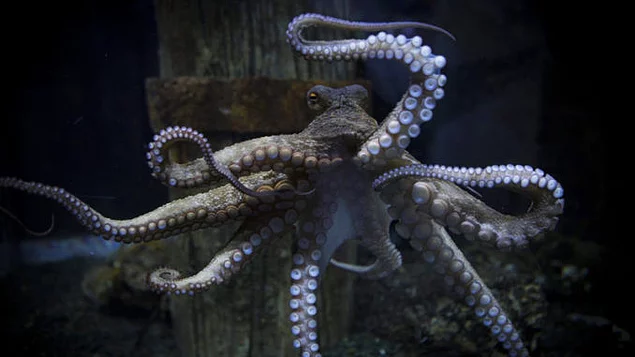
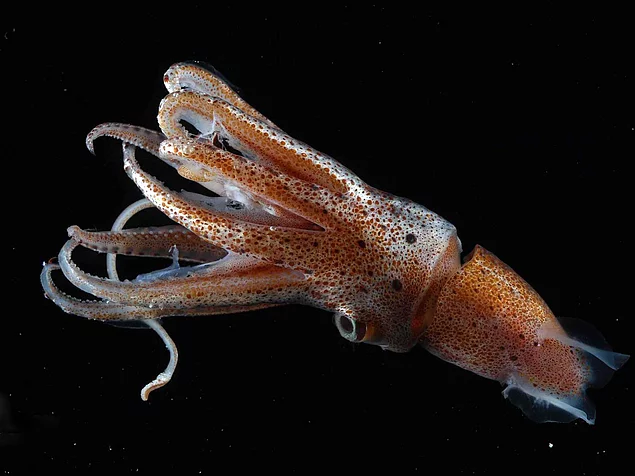
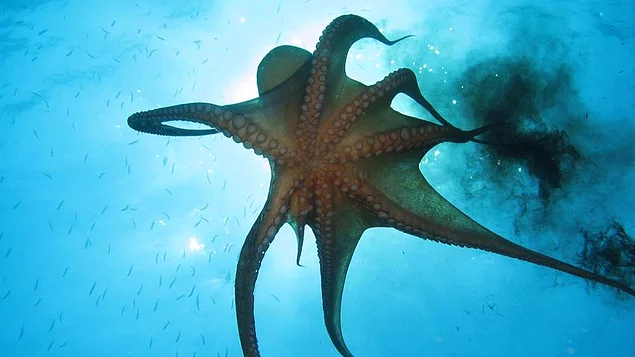
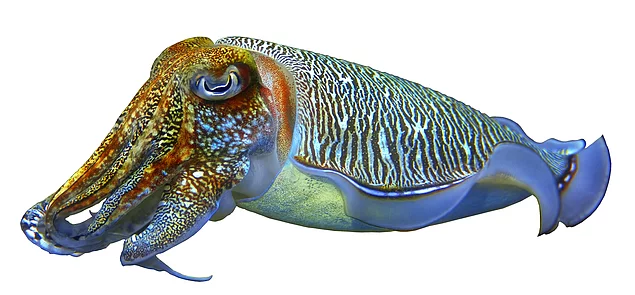
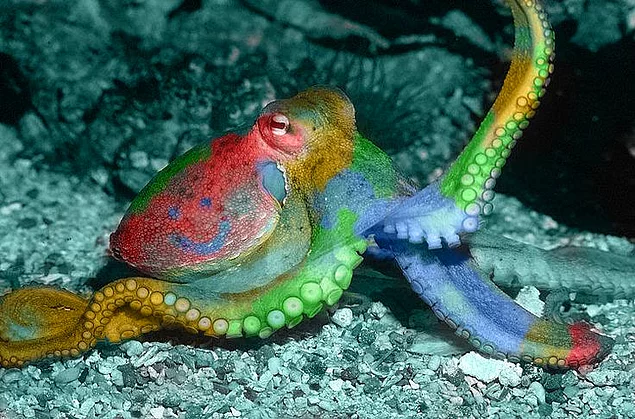

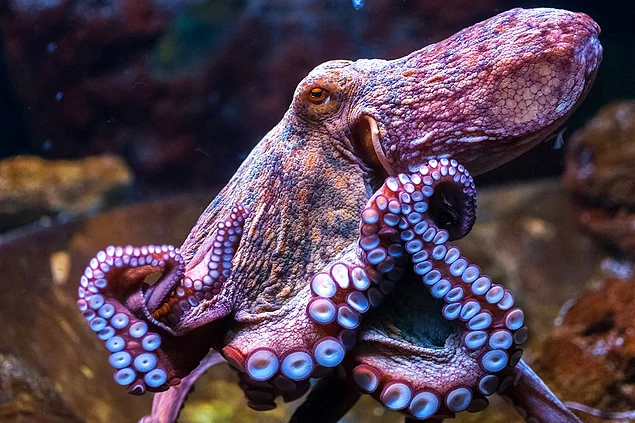
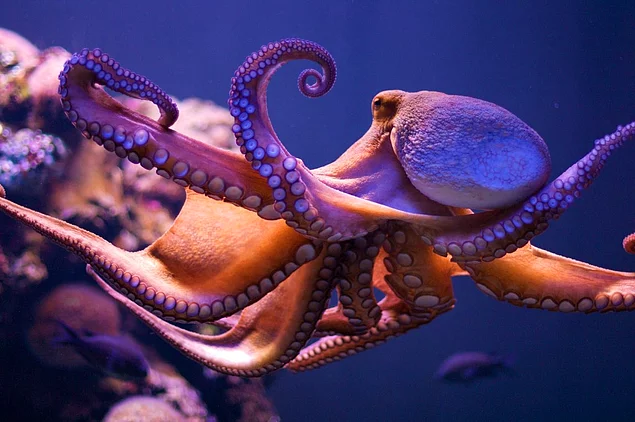
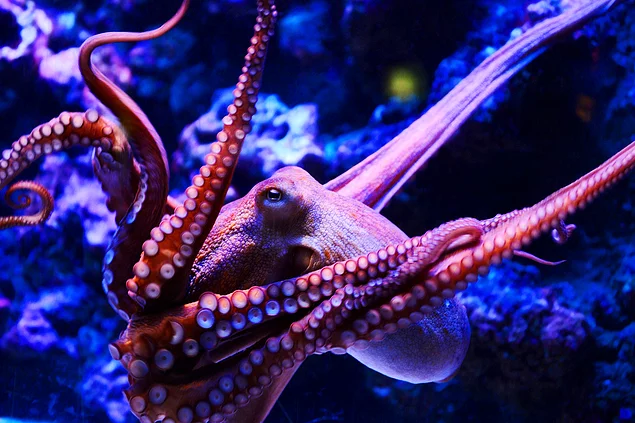
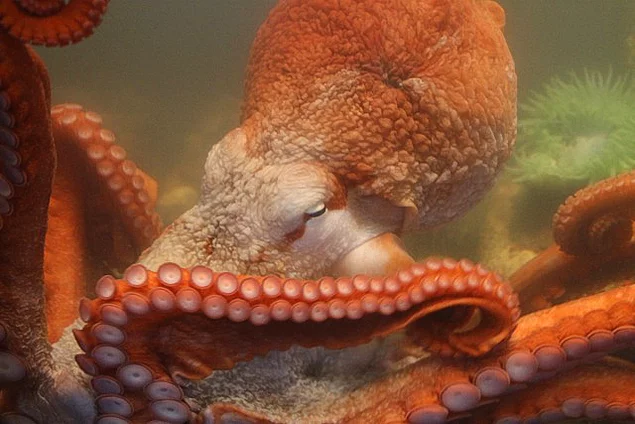
Nenhum comentário:
Postar um comentário